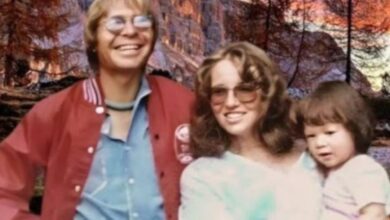The Kinks’ Groundbreaking Hit: The Hidden History of ‘You Really Got Me’ and Its Lasting Influence on Rock Music
In the early 1960s, the neighborhood of Muswell Hill in North London was alive with creativity and youthful ambition. It was in this energetic environment that brothers Ray and Dave Davies began experimenting with music, blending influences from jazz, blues, and the early roots of rock and roll. Their family home became a spontaneous performance space, where sing-alongs and informal jam sessions helped spark their musical vision and solidify their collaborative bond.
By 1963, the Davies brothers teamed up with bassist Pete Quaife to form a group initially called The Ravens. Their early shows were raw, energetic sets built around rhythm and blues standards, allowing the trio to develop tight musical chemistry. As they grew more confident and defined their artistic direction, they rebranded as The Kinks—a name that would soon become iconic within the British rock explosion of the decade.
The road to their first big hit was far from smooth. The Kinks’ first two singles, “Long Tall Sally” and “You Still Want Me,” failed to gain traction on the charts, leading to mounting pressure from Pye Records. Faced with the possibility of being dropped by their label, Ray Davies took it upon himself to write a track that captured the band’s raw power and intensity—a song that would finally make their voices heard.
The breakthrough came with “You Really Got Me,” a fierce and uncompromising track that would change the trajectory of rock music. Drawing inspiration from American blues bands and the aggressive sound of acts like The Kingsmen, Ray penned a riff-centric anthem that was direct, primal, and unforgettable. Its legendary distorted guitar sound was the result of Dave Davies slashing the speaker cone of his Elpico amp with a razor blade, creating a growl that would influence generations of guitarists to come.
The first version of “You Really Got Me” recorded at Pye Studios lacked the ferocity the band had envisioned. Disappointed, they pushed for a second attempt. Producer Shel Talmy believed in the track’s promise and personally financed a new recording session at IBC Studios. This time, in just two explosive takes, The Kinks captured the urgency and grit that would define their sound and launch their career to new heights.
When it hit the airwaves in August 1964, “You Really Got Me” caught fire. A standout performance on the show *Ready Steady Go!* and frequent spins on pirate radio gave it momentum. The song soared to number one in the UK by September and broke into the Top 10 on the American charts shortly after. This transatlantic success positioned The Kinks as central players in the British Invasion alongside The Beatles and The Rolling Stones.
The impact of “You Really Got Me” was seismic. It wasn’t just a hit; it was a revolution in sound and attitude. The single showcased The Kinks’ bold innovation and willingness to bend the rules, setting the stage for the birth of hard rock and influencing everything from punk to heavy metal in later decades. Its stripped-down structure and rebellious edge made it a blueprint for future rock anthems.
With their newfound success, The Kinks continued to build on their momentum, releasing hits like “All Day and All of the Night” and “Tired of Waiting for You.” Each release added another layer to their evolving sound, blending raw power with lyrical wit and musical experimentation. These tracks helped establish them as more than a one-hit wonder—they were a band with depth and a distinctive voice.
However, the band’s rise wasn’t without conflict. The intense pressure of success and the demands of constant touring often created friction among members. A particularly infamous moment occurred in 1965, when an altercation between Dave Davies and drummer Mick Avory led to a temporary band breakup. Despite such challenges, the same volatility that fueled these disputes also injected a fiery passion into their performances and recordings.
As the 1960s progressed, The Kinks refused to stagnate. Albums like *The Kinks Are the Village Green Preservation Society* marked a shift toward more introspective songwriting, with Ray Davies exploring themes of English identity, nostalgia, and societal change. Their sonic experimentation kept them relevant even as musical trends evolved, showing that The Kinks were far more than just loud guitars and catchy riffs.
The enduring influence of “You Really Got Me” can be heard in the DNA of modern rock. Its riff has been emulated, celebrated, and reinterpreted by countless bands over the decades. From Van Halen’s famous cover in the late 1970s to nods by contemporary garage rock revivalists, the song’s spirit remains a touchstone for musicians aiming to capture raw emotion through simplicity.
Beyond the song itself, The Kinks’ overall legacy has only grown. Their body of work has inspired tribute albums, documentaries, and even stage productions, all paying homage to their innovative style and cultural relevance. Their impact spans generations, proving that authentic expression and daring creativity never go out of style.
Looking back at their journey, it’s clear that The Kinks navigated the music world with a unique blend of risk-taking and resilience. Starting from modest beginnings in North London, they rose to international acclaim by carving out their own path—one that defied formulas and embraced originality at every turn.
Today, “You Really Got Me” is still a staple in the canon of rock. The song’s electrifying opening riff continues to thrill listeners, just as it did over half a century ago. It remains a bold declaration of artistic intent—a sonic revolution that echoes through time with the same rebellious energy it first unleashed in 1964.
Few rock tracks have achieved the lasting legacy of “You Really Got Me.” Its influence on the genre is immeasurable, and its creation story is a fascinating blend of ingenuity, struggle, and determination. The Kinks’ vision and drive not only gave birth to a groundbreaking single but also paved the way for an entire movement in rock music.





